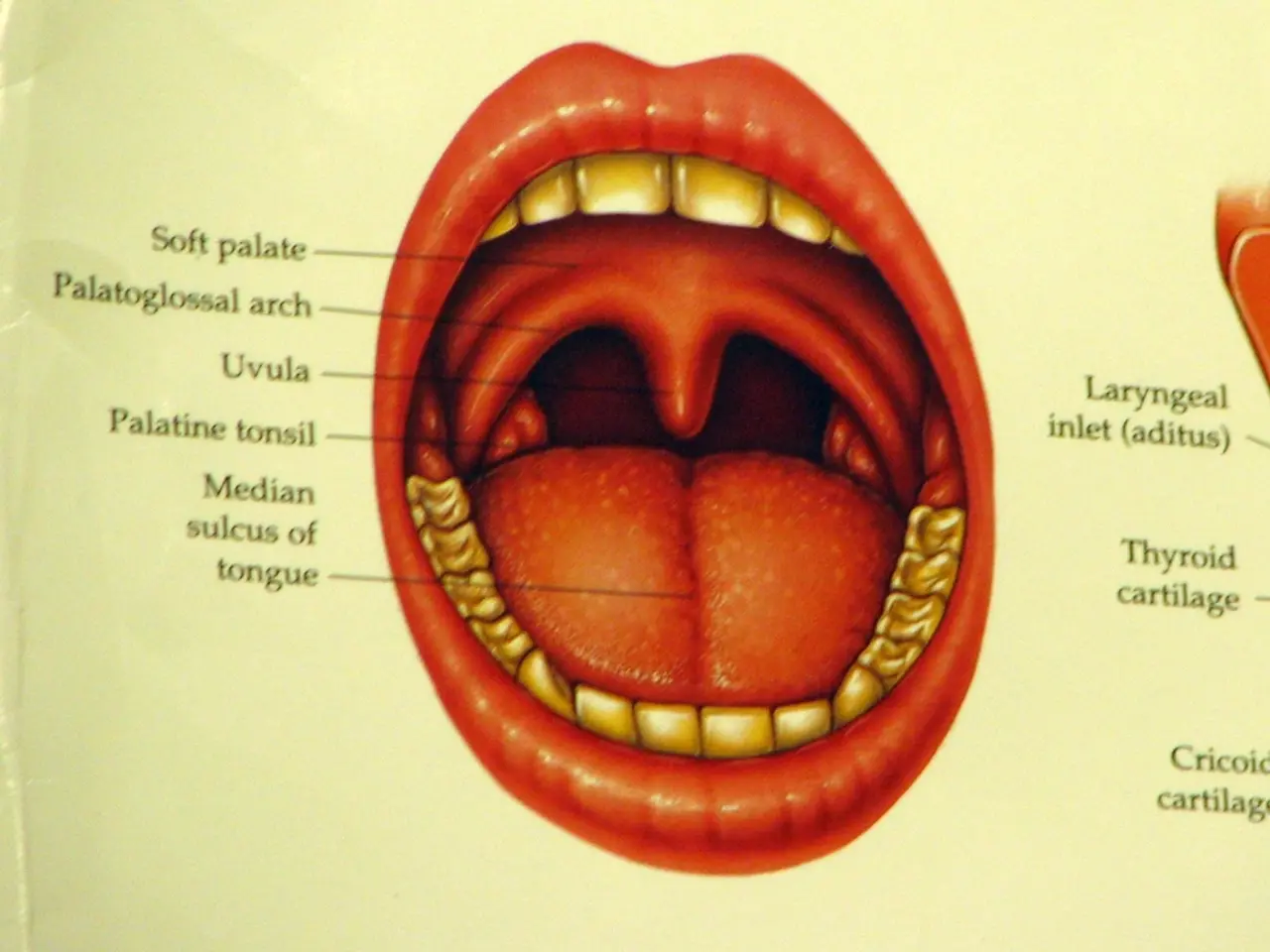Bleeding in the throat: Reasons, remedies, and when to seek medical attention
Throat Bleeding: Understanding the Causes and When to Seek Help
Throat bleeding, also known as haemoptysis, can be a concerning symptom for many people. This article aims to shed light on the various causes of throat bleeding and when you should seek medical attention.
Throat bleeding can be a sign of ulceration and inflammation in the gastrointestinal tract or mouth, known as mucositis or stomatitis, which is a side effect of cancer treatment. However, there are numerous other potential causes, ranging from local irritation and infections to serious systemic or pulmonary conditions.
Possible Causes of Throat Bleeding
- Respiratory infections, such as bronchitis, pneumonia, or tuberculosis, can cause inflammation and rupture of small blood vessels in the airways, leading to bloody sputum or bleeding.
- Chronic bronchitis and COPD cause bronchial inflammation that may produce blood-tinged sputum during flare-ups.
- Autoimmune/inflammatory diseases, such as granulomatosis with polyangiitis (Wegener’s granulomatosis), Goodpasture’s syndrome, and systemic lupus erythematosus, can cause inflammation and bleeding in the respiratory tract and lungs.
- Cardiovascular causes, like congestive heart failure, mitral valve stenosis, or pulmonary hypertension, can raise lung blood vessel pressure, causing bleeding that may present as bloody sputum.
- Lung cancer is an important but less common cause in older adults and smokers, where even a small amount of blood in sputum should prompt evaluation.
- Trauma or irritation of the airways, including vigorous coughing, recent medical procedures (e.g., bronchoscopy), or forceful nose blowing can cause blood vessel rupture and localized bleeding.
- Bronchiectasis, a chronic airway damage condition, can also cause bleeding due to fragile, expanded airways.
- Inhalation of toxic substances or foreign objects may injure the respiratory lining and cause bleeding.
- Several health conditions, such as gum disease, bacterial and viral infections, mucositis or stomatitis, and esophageal ulcer, can lead to bleeding in the throat.
- Certain medications, including antibiotics, NSAIDs, bisphosphonates, anticoagulants, and medications that suppress the immune system, can cause bleeding in the throat or sputum.
- Infections, such as those caused by Candida yeast, can cause bleeding in the throat or sputum.
When to Seek Medical Attention
If you experience persistent throat bleeding, heavy bleeding, bleeding that is difficult to control, or bleeding that soaks through cloth or tissues, it's crucial to seek medical care immediately. Additionally, if you experience other worrying symptoms such as difficulty swallowing or breathing, chest pain, fever, weight loss, night sweats, or worsening cough, you should consult a healthcare professional.
People with known risk factors, such as smoking, older age, or underlying health conditions, should pay particular attention to these symptoms and seek medical advice promptly. If you notice blood mixed with the sputum rather than just from the nose or mouth, indicating possible lung or airway origin, it's also important to seek medical attention.
In conclusion, persistent throat bleeding is a potentially serious symptom requiring prompt medical evaluation, especially to rule out infections, autoimmune diseases, cardiovascular issues, or malignancy. Early consultation ensures timely diagnosis and treatment to prevent complications.
- Predictive models in medical science can help identify high-risk individuals for certain health-and-wellness conditions, such as heart valve disorders, diabetes, HIV, Alzheimer's, psoriatic arthritis, depression, or multiple sclerosis, based on symptoms and medical history.
- It's essential to maintain good oral health, as gum disease and other oral health issues may also contribute to throat bleeding, exacerbating the severity and duration of this symptom. Regular dental check-ups and a balanced diet can help mitigate this risk.




